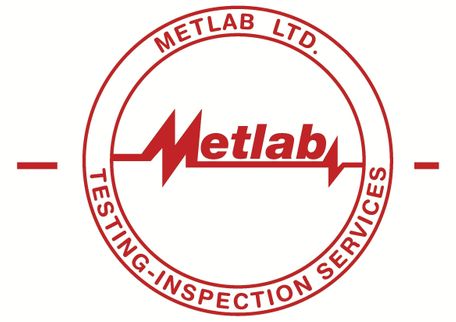06/02/2023 0 Comments
Corrosion Testing: The Answers To Your Questions
Since 1982, Metlab has been providing the best in corrosion testing.
Corrosion testing is an essential part of structure maintenance and repair. Our team of engineers naturally get asked various questions regarding corrosion testing. Therefore, we have compiled some of the most common questions below. If you have any further questions, please contact us today.
What is corrosion testing?
Corrosion testing evaluates a material's resistance to degradation due to its exposure to an environment that may cause corrosion. It involves exposing the material to a specific environment and observing its behaviour over time to determine its susceptibility to corrosion. The tests can be conducted in a laboratory or on-site and can be used to predict long-term performance, evaluate the effectiveness of protective coatings, or compare the performance of different materials.
How is corrosion tested?
Corrosion testing can be done using several methods, including:
- Electrochemical tests involve measuring a material's electrical current and potential in a controlled environment. The results can be used to determine the corrosion rate and predict long-term performance.
- Salt spray testing: This method involves exposing the material to a fine saltwater mist, simulating marine environments. The test is commonly used to evaluate the performance of coatings and protective treatments.
- Exposure testing: This method involves exposing the material to a specific environment, such as a particular type of soil or atmosphere, and observing its behaviour over time.
- Accelerated testing: This method involves exposing the material to a more severe environment than it would typically experience to accelerate the corrosion process and obtain results in a shorter amount of time.
- Microstructural analysis: This method involves examining the material's microstructure after exposure to an environment to determine the extent and type of corrosion that has occurred.
These are some of the most commonly used methods for corrosion testing, but other specialized tests may also be used depending on the material, environment, and desired outcome.
Why is Corrosion Testing Important
Corrosion testing is essential because it helps assess materials' durability and longevity in specific environments. The results of the tests can be used to make informed decisions about the design, selection, and maintenance of materials and structures. Some benefits of corrosion testing include:
- Improved safety: By evaluating the corrosion resistance of materials, it is possible to identify and address potential safety hazards, such as the risk of structural failure or contamination of food or water supplies.
- Increased efficiency: By selecting materials that are better suited to specific environments, it is possible to reduce maintenance and replacement costs and improve the overall efficiency of a system.
- Better product design: By understanding the behaviour of materials in different environments, engineers can design more durable products with a longer lifespan, reducing waste and the need for replacement.
- Enhanced reliability: By performing corrosion testing, it is possible to predict the long-term performance of materials and identify potential problems early before they cause failure. This leads to more reliable systems and reduced downtime.
Corrosion testing is essential for many industries, including construction, manufacturing, transportation, and oil and gas. It helps ensure that materials and structures perform as intended, providing a safer and more efficient world.
How do you test for corrosion on steel?
There are several methods for testing steel for corrosion, including:
- Electrochemical testing: Electrochemical tests, such as potentiodynamic polarization or linear polarization resistance, can be used to measure the corrosion rate of steel and predict its long-term performance.
- Salt spray testing: Salt spray testing involves exposing the steel to a fine mist of salt water, simulating a marine environment. The test is used to evaluate the performance of coatings and protective treatments on steel.
- Exposure testing: Exposure testing involves exposing the steel to a specific environment, such as a particular type of soil or atmosphere, and observing its behaviour over time.
- Accelerated testing: Accelerated testing involves exposing the steel to a more severe environment than it would typically experience to accelerate the corrosion process and obtain results in a shorter amount of time.
- Microstructural analysis: Microstructural analysis involves examining the microstructure of the steel after exposure to an environment to determine the extent and type of corrosion that has occurred.
These are some of the most commonly used methods for testing steel for corrosion. The method will depend on the steel type, environment, and desired outcome.
The above is by no means an exhaustive list. You'll likely have further questions on corrosion testing that our expert engineers will be happy to answer.

Comments
Leave a comment